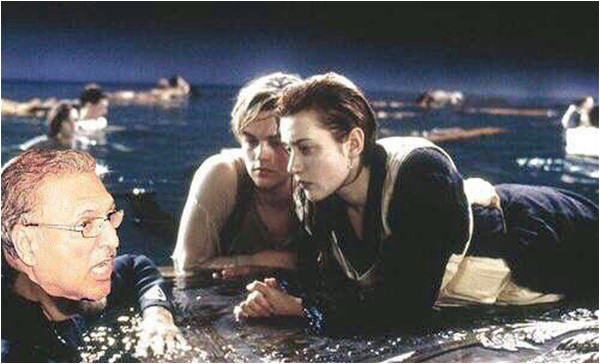
According to an old joke, Soviet dictator Joseph Stalin once visited a potato farm and asked how things were going. The farmer said that the harvest was so good that the potato would reach the “foot of God” if piled on top of one another. Stalin was not flattered.
He said: “But this is the Soviet Union and there is no God here.”
The farmer quickly replied: “That’s alright, there are no potatoes either!”
As the Russians would tell the world, sometimes political satire is the only way to face a grim situation. Indeed, Pakistanis today seem to understand that a good political joke is sometimes the only way to cope.
Momentous events have taken place in quick succession over the last few weeks and overwhelmed the populace. These events have given rise to speculation over the government’s ability to deal with challenges. One idea making the rounds is that only a “strong”, “powerful”, “determined and honest” government can save Pakistan. For those who know a thing or two about history, this sounds like euphemisms for a technocrat government i.e. an authoritarian government backed by the military, bureaucracy and judiciary.
Worse still, people are suffocating slowly. On one hand, they fear the Taliban and other militant groups (who are worse than the Taliban). But on the other hand, the suffocation means that they cannot talk about it openly. Most people generally restrain themselves from discussing religio-political issues for fear of getting into trouble. One has to be very careful while commenting on the security and foreign policy of the country. Insisting on a major shift could land you into serious trouble. It seems as if the season of fear about the known and the unknown has already set in.
Fortunately though, as Twitter, Facebook and WhatsApp amply demonstrate, political humour, ranging from the sophisticated to the outright mean, has regularly being doing the rounds. The material one finds here may not hold a candle to Pakistan’s long history of subversive writing. Of note are Ibrahim Jalees who wrote a column titled ‘Waghera, waghera’ in daily Jang, Inam Durrani who wrote ‘Talkhushereen’ in Anjam and then Jang and Nasrullah Khan who wrote in daily Hurriyat. Linguist and lexicographer Rauf Parekh has written on the topic itself.
Consider the rise of the lowly meme (an image, video, piece of text that is goes viral). Even at a time when Karachi was battling the rains just a week or so ago, one meme did the rounds of Arif Alvi of the Pakistan Tehreek-e-Insaf in a rubber boat, which appeared to be in rather shallow water. Twitter poked fun at him with a little help from Photoshop. Indeed, Photoshop has not spared any Pakistani politician in recent times.
Political jokes blossom and proliferate when the going gets tough and silence deafens. And so, these are depressing times, but also exciting times. While there are reasons not to smile today, the spirit of non-conformism abounds. Just recall the long and dark night which stretched to eleven years when General Zia-ul-Haq ruled Pakistan. He was a ruthless, brutal and terrible dictator. He toyed with the history, geography, religion and people of his country and promoted religious bigotry, intolerance and extremism in the name of Islam. He strangled the voices of dissent. It was in those days of repression and fear when the following joke made the rounds:
“God is holding court and the angels are assisting. Prominent leaders of Muslim states are being introduced one by one. They are graciously granted permission to ask one question each. The leaders, standing in a queue, come forward one by one. Imam Khomeini from Iran bows and says: “I have brought a revolution in Iran and wish to totally change Iran. Do you think that I can achieve this goal in my lifetime?” The Almighty looks at him for some time and then says: “Not in your lifetime.”

The next person is follows Zia-ul-Haq from Pakistan. He bows several times, with his right hand on his chest, and says proudly: “Sir! I am working tirelessly for Islam and I wish for Islamic revivalism in the entire Muslim World. When, in your opinion, would I succeed in achieving this cherished goal?”
The answer came swift and loud: “Not in my lifetime!”
Zia died in a plane crash in 1988. By any count or criterion, his was a draconian ruler. His grip on the levers of power and violence was absolute and he virtually converted the country into a republic of fear. However, the joke mentioned above and many other jokes about him must have diminished his stature among those who he emboldened to speak. Consider this one: What did Zia-ul-Haq say to his wife on their wedding? Martial law, you look beautiful.
Political jokes can embolden people and have a bonding influence. It becomes clear when we study the rise of popular protest movements in the Soviet Union and in Eastern Europe and during the Arab Spring in the Middle East that political jokes can become weapons.
For instance, jokes targeted the totalitarian regimes of the Soviet Union and Eastern Europe, and highlighted their darker side. A Soviet man was waiting in line to buy vodka from a liquor shop. The queue was very long due to restrictions imposed by the Soviet government led by Mikhail Gorbachev. Everyone in line was cursing the government and using abusive language. One man has reached the end of his tether. “I can’t take this waiting in queue any more,” he screams. “I don’t like Gorbachev and I am going to the Kremlin to kill him.” He leaves the queue, comes back after 40 minutes and joins the line at the shop once again. The people in line begin asking if he was able to kill Gorbachev. The man replies: “No. I went to the Kremlin alright, but the line there was even longer than the line here.”

Political humor is the revenge of the victim. No wonder there has been a proliferation of political jokes about third world dictators like Robert Mugabe, Idi Amin , Jean-Bedel Bokassa, Manuel Noriega, Augusto Pinochet, Than-om Kittikachorn, Kim Jong-un.
Hosni Mubarak, let me add here, ruled Egypt for almost 30 years and his reign was notorious for its brutality, ruthlessness and oppression. Political jokes about him abound. A teacher at a primary school in Egypt asks his students if elephants walk or fly. Excepting one, everyone says that elephants walk. The teacher tries to correct the student who says that elephants fly, but the boy insists that his answer is correct. Furious and frustrated, the teacher asks him his name. The student says: ‘Ahmed Alaa Mubarak’. The teacher immediately realizes that this student is the grandson of Hosni Mubarak. He then explains: “Yes, you are absolutely right. elephants do fly, but when they are tired of flying, they go down and walk.”
And finally one more about Zia-ul-Haq. President Zia-ul-Haq’s trusted barber seemed to have become infected by the popular demand for the restoration of democracy. One morning, while clipping the President’s hair, he asked:
“Ghareeb Purwar! When are you going to have elections in Pakistan?”
The President ignored his question with the contempt it deserved from a military dictator. At the next hair-cutting session, the barber asked: “Aali Jah! Isn’t it time you redeemed your promise to hold elections?” The President controlled his temper and remained silent.
On the third hair-clipping session, the barber again blurted out: “Banda Nawaz, the awaam are clamoring for elections, when will you order them?”
The President could not contain himself anymore and exploded: “Ghaddar! I will have you taught a lesson you will never forget.” And he ordered his minions to take away the barber and give him ten lashes. The barber fell at the great man’s feet: “Zill-e-Illahi, I eat your salt; how can I become a ghaddar (traitor)? I only mentioned elections to make my job easier.”
“What do you mean?” demanded Zia-ul-Haq.
“Every time I utter the word ‘election’, your Excellency’s hair stands on end and is much easier to clip.”
Professor Syed Sikander Mehdi, a peace educator, has served as chairperson of the Department of International Relations and as registrar of the University of Karachi. He can be reached at sikander.mehdi@gmail.com
He said: “But this is the Soviet Union and there is no God here.”
The farmer quickly replied: “That’s alright, there are no potatoes either!”
As the Russians would tell the world, sometimes political satire is the only way to face a grim situation. Indeed, Pakistanis today seem to understand that a good political joke is sometimes the only way to cope.
Momentous events have taken place in quick succession over the last few weeks and overwhelmed the populace. These events have given rise to speculation over the government’s ability to deal with challenges. One idea making the rounds is that only a “strong”, “powerful”, “determined and honest” government can save Pakistan. For those who know a thing or two about history, this sounds like euphemisms for a technocrat government i.e. an authoritarian government backed by the military, bureaucracy and judiciary.
Political jokes can embolden people and have a bonding influence. It becomes clear when we study the rise of popular protest movements in the Soviet Union and in Eastern Europe and during the Arab Spring in the Middle East that political jokes can become weapons
Worse still, people are suffocating slowly. On one hand, they fear the Taliban and other militant groups (who are worse than the Taliban). But on the other hand, the suffocation means that they cannot talk about it openly. Most people generally restrain themselves from discussing religio-political issues for fear of getting into trouble. One has to be very careful while commenting on the security and foreign policy of the country. Insisting on a major shift could land you into serious trouble. It seems as if the season of fear about the known and the unknown has already set in.
Fortunately though, as Twitter, Facebook and WhatsApp amply demonstrate, political humour, ranging from the sophisticated to the outright mean, has regularly being doing the rounds. The material one finds here may not hold a candle to Pakistan’s long history of subversive writing. Of note are Ibrahim Jalees who wrote a column titled ‘Waghera, waghera’ in daily Jang, Inam Durrani who wrote ‘Talkhushereen’ in Anjam and then Jang and Nasrullah Khan who wrote in daily Hurriyat. Linguist and lexicographer Rauf Parekh has written on the topic itself.
Consider the rise of the lowly meme (an image, video, piece of text that is goes viral). Even at a time when Karachi was battling the rains just a week or so ago, one meme did the rounds of Arif Alvi of the Pakistan Tehreek-e-Insaf in a rubber boat, which appeared to be in rather shallow water. Twitter poked fun at him with a little help from Photoshop. Indeed, Photoshop has not spared any Pakistani politician in recent times.
Political jokes blossom and proliferate when the going gets tough and silence deafens. And so, these are depressing times, but also exciting times. While there are reasons not to smile today, the spirit of non-conformism abounds. Just recall the long and dark night which stretched to eleven years when General Zia-ul-Haq ruled Pakistan. He was a ruthless, brutal and terrible dictator. He toyed with the history, geography, religion and people of his country and promoted religious bigotry, intolerance and extremism in the name of Islam. He strangled the voices of dissent. It was in those days of repression and fear when the following joke made the rounds:
“God is holding court and the angels are assisting. Prominent leaders of Muslim states are being introduced one by one. They are graciously granted permission to ask one question each. The leaders, standing in a queue, come forward one by one. Imam Khomeini from Iran bows and says: “I have brought a revolution in Iran and wish to totally change Iran. Do you think that I can achieve this goal in my lifetime?” The Almighty looks at him for some time and then says: “Not in your lifetime.”

The next person is follows Zia-ul-Haq from Pakistan. He bows several times, with his right hand on his chest, and says proudly: “Sir! I am working tirelessly for Islam and I wish for Islamic revivalism in the entire Muslim World. When, in your opinion, would I succeed in achieving this cherished goal?”
The answer came swift and loud: “Not in my lifetime!”
Zia died in a plane crash in 1988. By any count or criterion, his was a draconian ruler. His grip on the levers of power and violence was absolute and he virtually converted the country into a republic of fear. However, the joke mentioned above and many other jokes about him must have diminished his stature among those who he emboldened to speak. Consider this one: What did Zia-ul-Haq say to his wife on their wedding? Martial law, you look beautiful.
Political jokes can embolden people and have a bonding influence. It becomes clear when we study the rise of popular protest movements in the Soviet Union and in Eastern Europe and during the Arab Spring in the Middle East that political jokes can become weapons.
For instance, jokes targeted the totalitarian regimes of the Soviet Union and Eastern Europe, and highlighted their darker side. A Soviet man was waiting in line to buy vodka from a liquor shop. The queue was very long due to restrictions imposed by the Soviet government led by Mikhail Gorbachev. Everyone in line was cursing the government and using abusive language. One man has reached the end of his tether. “I can’t take this waiting in queue any more,” he screams. “I don’t like Gorbachev and I am going to the Kremlin to kill him.” He leaves the queue, comes back after 40 minutes and joins the line at the shop once again. The people in line begin asking if he was able to kill Gorbachev. The man replies: “No. I went to the Kremlin alright, but the line there was even longer than the line here.”

Political humor is the revenge of the victim. No wonder there has been a proliferation of political jokes about third world dictators like Robert Mugabe, Idi Amin , Jean-Bedel Bokassa, Manuel Noriega, Augusto Pinochet, Than-om Kittikachorn, Kim Jong-un.
Hosni Mubarak, let me add here, ruled Egypt for almost 30 years and his reign was notorious for its brutality, ruthlessness and oppression. Political jokes about him abound. A teacher at a primary school in Egypt asks his students if elephants walk or fly. Excepting one, everyone says that elephants walk. The teacher tries to correct the student who says that elephants fly, but the boy insists that his answer is correct. Furious and frustrated, the teacher asks him his name. The student says: ‘Ahmed Alaa Mubarak’. The teacher immediately realizes that this student is the grandson of Hosni Mubarak. He then explains: “Yes, you are absolutely right. elephants do fly, but when they are tired of flying, they go down and walk.”
And finally one more about Zia-ul-Haq. President Zia-ul-Haq’s trusted barber seemed to have become infected by the popular demand for the restoration of democracy. One morning, while clipping the President’s hair, he asked:
“Ghareeb Purwar! When are you going to have elections in Pakistan?”
The President ignored his question with the contempt it deserved from a military dictator. At the next hair-cutting session, the barber asked: “Aali Jah! Isn’t it time you redeemed your promise to hold elections?” The President controlled his temper and remained silent.
On the third hair-clipping session, the barber again blurted out: “Banda Nawaz, the awaam are clamoring for elections, when will you order them?”
The President could not contain himself anymore and exploded: “Ghaddar! I will have you taught a lesson you will never forget.” And he ordered his minions to take away the barber and give him ten lashes. The barber fell at the great man’s feet: “Zill-e-Illahi, I eat your salt; how can I become a ghaddar (traitor)? I only mentioned elections to make my job easier.”
“What do you mean?” demanded Zia-ul-Haq.
“Every time I utter the word ‘election’, your Excellency’s hair stands on end and is much easier to clip.”
Professor Syed Sikander Mehdi, a peace educator, has served as chairperson of the Department of International Relations and as registrar of the University of Karachi. He can be reached at sikander.mehdi@gmail.com

